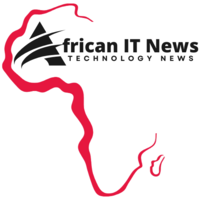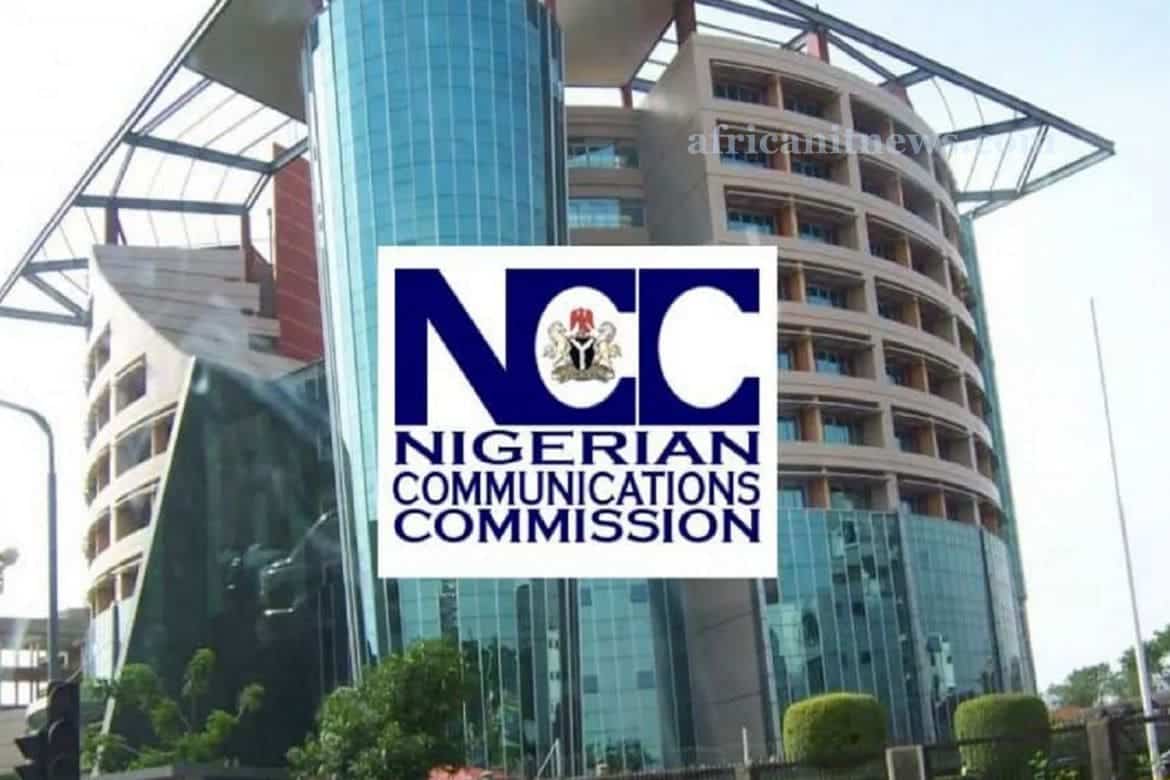The Nigerian Communications Commission (NCC), in its effort to advancing the development of telecoms, this week introduced a new Strategic Vision (Implementation) Plan (SVP) 2021-2025, which aims to enhance telecoms growth in the next five years, following the successful implementation of its Strategic Vision Plan (SVP) from 2015 to 2020. Emma Okonji contributes to this article.
The Nigerian Communications Commission (NCC), the telecoms industry regulator, has always charted a new course for the telecoms sector’s progress through its Strategic Vision (Implementation) Plan (SVP), which is in line with the federal government’s policy objectives, especially in the area of advancing the development of telecommunications
Following the successful implementation of the 2015 2020 Strategic Vision Plan, the commission introduced a new Strategic Vision (Implementation) Plan (SVP) 2021-2025 last week, which will define NCC’s strategic thrusts and drive telecoms development over the next five years.
In 2015, NCC released the SVP 2015-2020, a five-year Strategic Vision (Implementation) Plan that focused on telecoms development in the country at the time, employing several indices. Facilitating Broadband Penetration; Improving Quality of Service; Optimizing Spectrum Usage and Benefits; PromotinICT Investment and Innovation; Protecting and Empowering Consumers; Promoting Fair Competition and Inclusive Growth; Facilitating Strate
The SVP (2015-2020) was developed using a variety of policy papers, including Nigeria’s National Internet Plan (2013-2018), which set a five-fold increase in broadband penetration from 6% in 2013 to 30% by the end of 2018. NCC achieved a broadband penetration of 31.48 percent in December 2018, surpassing its previous year’s figure of 30 percent.
It also took note of the commission’s Strategic Management Plan (SMP) 2014–2018, which set out specific strategic goals in areas like market development, regulatory excellence, ICT penetration, and strategic partnering.
NCC, as a major stakeholder in the international community, participated in the formulation of the SVP (2015-2020), which was also aligned with the International Telecommunications Union’s worldwide agenda (ITU). In developing the commission’s implementation items of the plan, NCC drew on the ITU’s Vision Plan (2013-2018), which included sustainability, inclusion, and growth as main thrusts.
2021-2025 SVP as a catalyst to advancing the development of telecoms
After successfully completing the 2015-2020 Strategic Vision (Implementation) Plan (SVP), the commission announced a new Strategic Vision (Implementation) Plan (SVP) 2021-2025 last week in Abuja, which would outline NCC’s strategic thrusts for the next five years.
The commission used the presentation of the Strategic Vision (Implementation) Plan (SVP) 2021-2025 to also release the official book of Prof. Umar Garba Danbatta, NCC’s Executive Vice Chairman. The book is an official compendium that contains a collection of Danbatta’s many speeches and presentations during his first term as Executive Vice Chairman. The title of the book is ‘Catalyzing Nigeria’s Socio-Economic Transformation Through Broadband Infrastructure,’ emphasizing the importance of broadband in Nigeria’s transition to a modern digital economy.
NCC also utilized the event to launch NCC Global Connect, a new media channel.
Danbatta stated in his speech that the need to re-energize the commission and propel it to greater heights prompted the creation of a new Strategic Vision Plan, which is the successor to the SVP (2015-2020). “We have taken cognizance of several notable advancements in the Nigerian telecommunications industry over the last five years, as well as current global realities like the International Telecommunication Union (ITU) Strategic Plan (2020-2023), the Commission’s Strategic Management Plan (SMP) 2020-2024, and the National Digital Economy Policy and Strategy (NDEPS) 2020,” Danbatta says.
The new strategy, according to Danbatta, was led by and linked with the federal government’s NNBP (2020-2025), NDEPS (2020-2030), SMP (2020-2024), ITU Strategic Plan, and ERGP.
Objectives of the SVP
The revised SVP 2021-2025 consists of five elements, all of which are centered on attaining the following goals: Organizational Renewal for Regulatory Excellence and Operational Efficiency Facilitating Infrastructure Provision for a Digital Economy that Promotes National Development;
Fair competition, inclusive growth, increased investment, and innovative services; improving quality of service (QoS) for better consumer quality of experience (QoE); and facilitating strategic collaboration and partnership
The new SVP also includes built-in initiatives, key performance indicators designed from the start, and activities related to an implementation responsibility matrix to ensure a strong commitment to its implementation.
It also includes timelines and a comprehensive monitoring and assessment system. It is outcome-based and recommendation-driven, with follow-up actions to assist the commission in putting the plan into action and evaluating its effectiveness over time.
“No doubt, the new SVP incorporates some unique features purposefully aimed to re-invent and restructure the telecom ecosystem within the context of regulation,” Danbatta stated of the new SVP’s goals. We shall continue to do our best to carry out the Commission’s mandate, particularly in promoting broadband deployment, which is critical for diversifying the Nigerian economy and national growth, as outlined in the National Digital Economy agenda.
Broadband infrastructure has unquestionably become the most important development infrastructure in the modern economy.”
He explained that the industry would undergo additional quantum leaps under the leadership of Minister of Communications and Digital Economy, Dr. Isa Ali Ibrahim Pantami, and would maintain its existing leading role in bringing much-needed development to Nigerians.
Podcast Channel of the NCC
Last Monday, the NCC inaugurated its Podcast Channel, also known as NCC’s Global Connect.
“Over the years, NCC has used a variety of well-established traditional and social media sites — Facebook, Instagram, LinkedIn, YouTube, and Twitter (now banned) – for our media and public relations activities,” Danbatta said. However, we are not slowing down in our efforts to broaden our media horizons. We want to reach out to as many of our stakeholders as possible with our comprehensive material in order to empower them and raise our profile locally and globally.
“Podcasts have grown increasingly popular as a medium of stakeholder engagement as a result of improvements in digital technologies, as they help increase these engagements in an organic and conversational fashion.
To keep up with these improvements, we’ve launched NCC Global Connect, the Commission’s podcast channel.”
The creation of the podcast channel is in line with our strategic initiatives to improve the commission’s corporate image and visibility through the use of innovative communication channels such as developing audio and video content to reach our stakeholders both inside and outside the country, as well as using it to attract prospective investors to the Nigerian telecommunications market. He went on to say that the NCC Podcast would work in tandem with NCC’s other online media channels to promote a wide range of communications efforts and collaborations by providing new and unique methods to communicate with stakeholders.
The podcast’s audio content is available on a variety of platforms, including Podcast Addict, Spotify, Apple, Amazon Music, Google Music, iHeartRadio, and Deezer, among others.
Stakeholders’ Points of View in advancing the development of telecoms
Dr. Isa Ibrahim Pantami, Minister of Communications and Digital Economy, and other key telecommunications stakeholders have praised the NCC for the historic unveiling of its Strategic Goal Plan (SVP) 2021-2025, which aims to advance the federal government’s digital economy vision.
Pantami congratulated Danbatta on the first SVP’s achievement and stated that the current one will aid in achieving the goals of the national digital economy policy.
The Minister stated that the new SVP would lead the way in implementing the NNBP 2020-2025 and NDEPS in order to expedite the achievement of the federal government’s national targets on digital economy vision.
“This NCC approach has cascaded the two pertinent national policies, most notably the national digital economic policy and strategy for a digital Nigeria and the Nigerian national broadband plan. Pantami stated, “This is what the plan is all about.”
Senator Yahaya Abdullahi, the Senate Majority Leader, praised the NCC for its futuristic vision, which he said was on the right track and capable of propelling Nigeria to greater heights in the twenty-first century.
Hon. Akeem Adeyemi, Chairman of the House Committee on Telecommunications, lauded the SVP’s initiative and other NCC projects, adding that the NCC had continually been a major contributor to the country’s Gross Domestic Product (GDP) in recent years.
Prof. Muhammed Abubakar, the Managing Director/Chief Executive Officer of Galaxy Backbone, praised Danbatta for his innovative leadership in his speech.
The initiatives, according to Abubakar, would guide Nigeria’s digital transformation. He also praised the minister for his efforts and support for the digital ecosystem’s development.
Takeaways
What AfricanITNews.com has gathered from the above is that the Nigerian Communications Commission (NCC) has always charted a new course for the telecoms sector’s progress through its Strategic Vision (Implementation) Plan. In 2015, NCC released the SVP 2015-2020, which focused on telecoms development in the country at the time, employing several indices. Following the successful implementation of the 2015 2020 Strategic Vision Plan, the commission introduced a new Strategic Vision Plan (SVP) 2021-2025 last week. It would outline NCC’s strategic thrusts for the next five years. The plan was developed using a variety of policy papers, including Nigeria’s National Internet Plan (2013-2018), to boost broadband penetration.
The SVP 2021-2025 consists of five elements, all of which are centered on attaining the following goals: Organizational Renewal for Regulatory Excellence, Facilitating Infrastructure Provision for a Digital Economy that Promotes National Development, Fair competition, inclusive growth, and innovative services. “We have taken cognizance of several notable advancements in the Nigerian telecommunications industry over the last five years, as well as current global realities like the International Telecommunication Union (ITU) Strategic Plan (2020-2023), the Commission’s Strategic Management Plan (SMP) 2020-2024, and the National Digital Economy Policy and Strategy (NDEPS) 2020,” Danbatta says.




